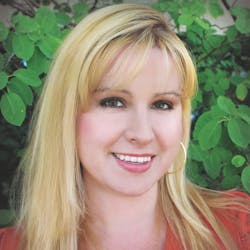About the author: Elisabeth Lisican | Editor-in-Chief | [email protected]
The need to attract, engage and develop the capacity of water professionals cannot be emphasized enough. This was a recent theme of a session that took place as part of UNESCO-IHE’s attendance at the World Water Week in Stockholm last summer. UNESCO-IHE is the largest international graduate water education facility in the world and is based in Delft, the Netherlands. The institute bestows fully accredited MSc degrees, and Ph.D. degrees in collaboration with partner universities.
World Water Week in Stockholm is an annual event focusing on the globe’s water issues.
The session outlined the fact that a shortage in skills and in the number of water professionals in developing countries undermines the success and sustainability of efforts, and stands in the way of universal access to safe drinking water and sanitation. The session nodded towards recent GLAAS (Global Analysis and Assessment of Sanitation and Drinking Water) and International Water Assn. reports.
This yields a need to strengthen the global water sector capacity by “providing valuable opportunities for young professionals, retaining those with relevant experience, and ensuring water practitioners have the skills, knowledge, and incentives they need.”
The session also highlighted four key questions:
- What skills and knowledge will the water workforce need in 2030?
- How can we attract people to work in the water sector and ensure they have the needed competencies?
- How can we strengthen the capacity of current practitioners?
- How can we engage and retain professionals who are working in the sector to contribute to the achievement of SDG6 (the United Nations’ goal of ensuring availability and sustainable management of water and sanitation for all)?
Water industry leaders here at home need to ask themselves these questions, too. So, now would be a great time for me to mention that W&WD, in conjunction with the Water & Wastewater Equipment Manufacturers Assn. (WWEMA), is offering a $1,000 scholarship to a student pursuing a career in water. If you know of someone, you’ll want to inform them of this prize.
The deadline to submit an application for the 2016 scholarship is Monday, Oct. 17, 2016.
To qualify for the scholarship, students must have a parent employed by a WWEMA-member company and must be accepted into a four-year bachelor’s program in an acceptable field of study by an accredited institution of higher learning. Examples of acceptable fields of study include biology, chemical engineering, chemistry, civil engineering, environmental engineering, environmental sciences and/or natural resources planning.
Please email me to request an application.
